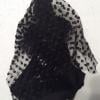Search the Community
Showing results for 'reactive hypo'.
Found 1,425 results
-
Seventh Generation Unscented Baby Wipes Aloe List Price: 19.95$Sale Price : Click to see the sale price Seventh Generation Unscented Baby Wipes Aloe 7, 0 x 7, 9 in, Soft & gentle, All natural lotion with aloe vera & Vitamin E; Hypo-allergenic; Whitened without chlorine bleach, Our baby wipes are moistened with natural aloe vera, Vitamin E, and water to cleanse and moisturize gently and naturally, Unlike many traditional baby wipes, ours are not bleached with chlorine and do not contain alcohol or synthetic ingredients that can irritate baby's skin, You Can Make a Difference : Please reuse this container with our refill pack, Each refill pack uses 90% less packaging than a hard plastic container, Be kind to your baby and the environment, Not tested on animals, No animal ingredients, Binding:Health and Beauty Brand:Seventh Generation Feature:All-natural wipes moistened with aloe vera, vitamin E, and water Feature:Chlorine- and alcohol-free formula gently softens baby's skin Feature:Environmentally sensitive design minimizes impact for "next 7 generations" Feature:Not tested on animals; reusable container Feature:80 unscented wipes measuring 7.1 by 7.9 inches Label:Seventh Generation ListPrice: Manufacturer:Seventh Generation NumberOfItems:5 PackageDimensions: ProductGroup:Health and Beauty ProductTypeName:HEALTH_PERSONAL_CARE Publisher:Seventh Generation ReleaseDate:2006-06-12 Studio:Seventh Generation Title:Seventh Generation Unscented Baby Wipes with Aloe Vera & Vitamin E - 80 ea (Pack of 5) Click Here for More Details ! Do not Miss It!! Source
-


VSG to ESG Surgery??-Why??
RickM replied to teedsg's topic in Revision Weight Loss Surgery Forums (NEW!)
Second guessing and some regret is normal when one runs into problems. It is well to realize that whatever road you chose in the past was likely to be bumpy, even if the bumps might have been different. The bypass, in addition to having its own quirks (someone just showed up on today's recent topics column who is having reactive hypoglycemia problems - that's one of those quirks,) that can cause regrets, would not likely have been any better on helping you with your regain (RNY and VSG are very similar in that regard,) and is also more difficult to revise should you have had problems. So, there is (and was) no easy, straight answer. We follow what looks like the best road for us and take what life throws at us over time.. -
Gold and silver are softer and therefore more porous on a microscopic level, and can "pit", meaning bacteria or other irritants can cling to them. They can also flake off into the open wound, and are more reactive with body fluids. They're generally fine for a healed piercing (which can take a few weeks to several months depending on what kind of piercing it is), but because they're not as hard and non-reactive as something like surgical steel or titanium. I worked, unfortunately, at a Claire's in a mall for several years when I was in college, and I know that stores like that push gold as being "safer" when really it is "more profitable". I had nothing but problems with piercings done in gold with a piercing gun. I have since gotten SEVERAL more piercings done with a single-use hollow needle at a piercing parlor, and have had none of the same issues. The right establishment should almost feel like a medical office.
-


THE SLOW LOSERS CLUB SUPPORT THREAD
Serengirl replied to Serengirl's topic in Gastric Sleeve Surgery Forums
No but I do have PCOS and endometriosis and I am insulin resistant. I used to be Hypo thyroid and right around surgery it was fine and I am due for my blood test because it changes often so I might have to go back on meds for that (my dr took me off ) if its out of balance now. -
Prior to surgery I had Idiopathic hyperhidrosis, or excessive sweating for several years. Shortly after surgery this condition went away. I am now 5 years post-op and that condition is no longer a problem. This weblink list 10 causes of night sweats. http://www.activebeat.co/your-health/10-common-medical-causes-of-night-sweats/ #4 and #10 look interesting. Do you have other symptoms that pair with these conditions. Many people develop a condition called reactive hypoglycemia after bariatric surgery.
-
@@rose1504 Definitely get your Thyroid checked, and not just TSH and T4, but T3 as well. I have Graves Disease (autoimmune thyroid disease), this kept me slim my whole life, till 2014 when it did 180 degree turn, and I was piling on weight at a frightening speed. I went from 60kg to 101kg between 2014 and March 2016. I also developed astonishing sweet cravings during that time, which made a mess of me. Graves is Hyper-thyroid. I had every symptom of this disease, except of bulging eyes and goitre. There is also Hypo-thyroid (under-active), Hashimotos etc which also can really mess with metabolism and general well being. Good luck @@rose1504 I hope you don't have thyroid disease, as I wouldn't wish it on my worst enemy ...... Had my both ear Daiths pierced 3 weeks ago, to see if they would help my thyroid migraines and severe headaches. They (the acupressure point piercings) helped me tremendously! I was living almost daily on very strong pain killers. Now, I don't take them, and so those piercings really helped me. I have a huge stock of heavy duty pain killers at home, and now I forget all about them. So, Good Luck with all your tests. Please let us know how you went.
-


I can't stop losing weight
Healthy_life2 replied to ebroms17's topic in General Weight Loss Surgery Discussions
We are all different. My doctors’ instructions for my reactive hypoglycemia may not work for other people. It may help to contact your Dr. that has your medical history or an endocrinologist who works with diabetes/hypoglycemia. I’m fortunate that hypoglycemia was a lesser complication after surgery. Just like a diabetic manages blood sugars you also learn to manage reactive hypoglycemia. -
I have a 8 year old stepdaughter that lives with us half the time. She is 4'7" and weighs 113lbs. (Hubby and I have only been married a year so I'm still adjusting to my new role.) I've expressed a huge concern about her weight at such a young age. We've discussed it with her mother but she feels like we are making a mountain out of a mole hill. (We don't discuss it with the daughter, just me, hubby, and her mom.) I wonder if I am not overly sensitive and reactive to it because of the way I grew up being fat. I want so badly to "fix" this in my stepdaughter so she won't have to deal with all of the cruelness that comes with being overweight. I've always sworn that I would NEVER let my kids get too big. Do you think I worry about it more than I should? In a way I feel like a hypocrite because I am trying to help control her portion sizes and food choices and exercise and then I look at myself. I didn't do a very good job of those things pre-band. The last thing I want to do is make her self-conscious about her weight and expose her to eating disorders and low self-esteem. But how do you get it under control with a delicate touch?
-


Reactive hypoglycemia
EricsAngel replied to debm56's topic in POST-Operation Weight Loss Surgery Q&A
I am 9 yrs out from RNY...have had reactive hypoglycemia for about 7 of those. It started when I stopped counting sugars. Dont go over 15 grams per sitting and see if that helps. I know RNY is differs from sleeve so this may be too many grams for you...just pay attention to your grams til u get it right. I am only treated with diet. 9 yrs. out -


Hypoglycemia after Bypass?
Healthy_life2 replied to gilbermon's topic in Gastric Bypass Surgery Forums
I have the sleeve but, I do have reactive hypoglycemia. For me its a minor complication after surgery. It's manageable with nutrition. I also distance run. I have to balance things out so my sugars don't get too low. I have no regrets having my health back. It's great that you are doing your research and evaluating all the possible risks and complications before surgery. -


Official Ongoing Gastric Sleeve Maintenance Thread
Holiday replied to Oregondaisy's topic in WLS Veteran's Forum
I haven't been around much since I had surgery. The site went nuts and wouldn't load properly for the "formative months" after surgery, so I kinda quit coming around. But I find myself really needing to connect with you guys on the maintenance issues these days. I hope you'll have me back. Before surgery, I was not a dieter. Diets clearly weren’t working for anyone else, not in the long-term, so I didn’t really bother with any certain plan. Instead, I exercised and tried to be aware of what I ate. Clearly, that didn’t work for me. I ended up, at my highest weight, at about 235 pounds on a 5’1” medium frame. On a recent Disney World vacation my hips, back, and feet hurt so much that the thought of going back made it clear that either I had to lose the weight or I’d be one of those people on the motorized scooters at the ripe old age of 34. The greatest gift of this surgery was the clear guidelines and the months following surgery in which, while unable to eat as I used to, I changed my approach to eating and understood that I can manage to eat anything I want, just not everything that I want. I recently celebrated my 1-year anniversary. In that year, I lost 100 pounds, with my lowest weight being 134.4. The upsides of surgery are undeniable and I have no regrets. This was the verry best decision I ever made for myself. I’m a bit of an introvert and misanthrope, but I find myself jubilant for days when I get some appreciative attention. No one has flirted with me for years and it feels great. I have become a bit of a clothes horse (LOL) and have a great time shopping and dressing, things I never cared about in the past. I generally just feel a whole lot better about myself and the world, I find. But learning to maintain my new habits, my outlook, my motivation, that is where I find myself struggling. I’ve noticed since I made it into the 130 pound range that eating has gotten noticeably harder. It could be timing, my weight, my body’s adjustment, my mental state, or any combination of factors. But suddenly I find myself in a place where my past handle on controlling my eating has become completely unhinged. I’ve tried the “let’s just get back to basics” approach a few times and then found myself right back to the bad habits. So, what are these basics and the bad habits? Here is the score: Daily 60-70 grams of protein daily – easy, peasy without fail 64 oz of water – I think I’ve been pretty good here, but I recently began to really push water I hopes that it might solve some hunger issues. Weekends are my only big concern and I’m actively working on it. 2 Bariatric Fusion multi-vitamins daily – like clockwork I exercise (cardio, strength, and core) 3 times a week without fail, shooting for a 500 calorie burn each time. I also use my heart rate monitor when I walk the dog and track what calories I burn. I track my food, even my crazy binge eating days, every day on myfitnesspal.com and my food diary is open to my friends. I’m “HeatherTakesCharge” if anyone wants to find me. I am still trying to lose, so I try to keep my net daily calories (after exercise calories burned) to 800-1000. I find myself well over 2000 calories too often. My ultimate goal is 125 pounds, though I’m not overly concerned with it. As long as I’m not going up, I’m pretty happy. My biggest scare happened last week. I woke up one morning and found my weight above 140. Something has to change. My blood work, taken every 3 months since surgery, has been perfect. No issues. I can comfortably eat a HUGE amount of food compared to the limited number of bites I read many of you saying. My restriction is definitely there, but not like I’d hoped. I’d love to go back to the days when I could only eat a handful of bites at a time. I feel physical hunger pangs as well as dealing with head hunger. For the first 6 months, I could easily eat a piece of candy and satisfy my sweet monster. Now, even thinking about eating something sweet sends me into a monster craving to which I too often give in and in a ridiculous, binge eating way. It is SO scary. I swore I’d never eat like that again, yet here I am. I have intense acid reflux without medication, but my prescription Prilosec controls it well as long as I don not forget to take it. I battle reactive hypoglycemia occasionally. If I get a handle on it quickly, I can recover. But sometimes it just ruins my day, both calories-wise and by making me feel ill for an extended period. My food intake during the day is usually exemplary. It is the time I am at home when I make the very worst choices. My partner is fighting some insecurity and self-esteem issues, leading to what I consider deliberate attempts to sabotage my eating. Her answer is, “You did this to yourself. I’ll do what I want. You make your own choices.” Therefore, at least at home, I am unable to keep out the foods that I find most damaging. And she is the primary cook. I try to make my own dinner sometimes, but if I do it constantly, this also becomes a point of contention. Her choice of meals or places to eat out NEVER consider how it will impact my diet. The sabotage extends to the gym as well, with at least one melt-down a month about how my trips to the gym are ruining her life. Seriously. But that is a whole different issue, I know. I’ve dealt with the relationship issues successfully in the early months, so I know I can continue. But it is simply one more strain on the bigger picture, you know? So that is it. My head isn’t in the game any longer. I feel myself becoming more and more depressed and fearful that I’ll slip into that old “I’ll eat what I want” person who can not find the motivation to get back on track. -


Hypothyroidism and gastric bypass surgery
outofusernames replied to Castrad01's topic in Gastric Bypass Surgery Forums
I was diagnosed with hypo at 10 years old. Weight has been a struggle all my life. I've been on Synthyroid (levo), Cytomel (lio), Armour and a combo of Synthyroid and Cytomel (best imo). In 2019, I had been on only Cytomel for 3 years and had heart, liver and kidney failure caused by Cytomel (lio) toxicity. It had been eating away muscle including my heart. When I was taken to the ER, my heart rate was 20 and they couldn't get a temperature because I had hypothermia. I was in my 30's, btw with no prior health concerns other than hypothyroidism. I believe it was made worse because I thought I had a virus for 3 days but my heart was failing. I went into a myxadema coma. After 11 days in ICU and 3 weeks in the hospital, I couldn't lose weight to save my life. After trying to lose for 8 months, my Endocrinologist recommend sleeve surgery. My loss has not been as fast as many on this board. I had surgery in July and my pre-surgery weight was 208 at 5'5". Pre-surgery diet was only a week long and I may have lost a few pounds. Since surgery I have lost about 56 pounds. My surgeon is fine with my loss. He says to hit protein and water goals but don't go below 1200 calories and eat whatever you want (after post-surgery diet, of course). I suppose I feel that surgery is pointless if I have to starve and restrict. I've done that most my life. I know many don't agree with that and I understand why. I found my tastebuds changed and sweets aren't as important as they were pre-surgery. I hope to meet my goal by 1 year. My periods have been lasting 2+ weeks and are super heavy so now I'm anemic and I'm sure it hasn't helped my weight loss. I am having a DNC soon to see if there is an underlying reason for all the blood. I can't be on normal birth control due to my heart. I went for an echocardiogram this past week and it came back normal! Considering I had cardiomyopathy, a temporary pacemaker, kidney dialysis, and liver failure less than 2 years ago (in my 30s lol), I am happy with my progress. I think having surgery with hypothyroidism is worth it. -


Any foods permanently off your safe list?
ummyasmin replied to 2Bsmaller18's topic in Food and Nutrition
I wasn't given a permanent 'no' list but anything with quickly absorbing sugar is a big no-no. Icrecream makes me dump so fast my head spins. Same with commercial hot-chocolate/mochas. Jams and refined carbs give me reactive hypos and I HATE them with a passion so I just avoid those permanently now. But I'm lucky I can do a bit of dark chocolate without too many problems, so that's my bit of naughtiness. -
Had my RNY surgery March 9th and have lost 49 lbs but only lost two all last month. I was in hospital 3 days start of July with liver enzyme issues and my TSH (thyroid) numbers had went from hypo to hyperthyroid. Dr took me off synthroid for 3 days and then went back on 1/2 dose (50 mcg). Did that for a week and a half and the mental fog and sluggishness came back. Dr took me off synthroid completely. I go back Aug 20th to have TSH checked again. Could my going on and off and on and off synthroid be causing this drastic slow down in weight loss? I am still 30 lbs from my goal of 160 and was losing 2 lbs a week before this all happened. I have really enjoyed reading everyone's posts and getting some great advice on here!
-
I'm supposed to eat 4 oz every hour. I can't, it's too much in one shot. So I eat 2 oz every half hour. For the food portion, I Water down Campbells broccoli and cheese. I make a big pot (1 can-skim milk based) and put it in the fridge. Then when I need some, I just measure out my 2 oz. Because it cools quick, I make it nice and hot and eat with a spoon. For my powder I do: 8 oz skim milk 8 oz Crystal Lite Orange (sugar free Tang is even better, if you can find it.) 2 scoops whey vanilla (contains 60g protein) purchased at Walmart. BLEND WELL. Chill a tray of orange ice cubes. Either drink (or nurse )4 oz ever few hours, or nurse an 8 oz glass half the day, and the other, the second half. The orange ice cubes help keep the taste going, and it really takes like an orange smoothie. I'm sure other Crystal Lite Flavors would substitute well, like strawberry. OH and I keep a diary so I don't forget. Weird, before the lapband, I could get up in the morning and not even think about food until 6 hours later. Now, I'm HUNGRY. I guess it's completely psychological. As a large person I knew I was supposed to eat three meals a day to keep up a good metabolism (and mind is sluggish and hypo), but I just couldn't bring myself to doing it. BUT was forced to to keep that diary and eat all those meals to prepare for the surgery. Now that I'm used to eating all day, going liquid sure is hard. I feel that I just need to immerse myself in some work and I'll forget how hungry I am all the time. So that when I set the timer to remind me to eat, I'll be pleasantly happy OR maybe disillusional.:eek:
-


Help I'm gaining! How did you change your relationship with food?
James Marusek replied to Camella's topic in General Weight Loss Surgery Discussions
gpmed wrote This is interesting. I'm not currently having any trouble, but this sparked a question. I'm 19 months out from RNY and I've had to deal with reactive hypoglycemia. I find it helps me to eat smaller amounts throughout the day instead of three meals and no Snacks. So what's the difference between this and grazing? Or how does one do this without falling into the pitfalls grazing presents? Grazing is more akin to snacking. Consuming 5 smaller meals a day is not grazing. -


Full size pills/medication
mallory0405 replied to MN_Meg770's topic in Gastric Bypass Surgery Forums
I loved all these different replies and it just goes to show that we are all so different in the way we are made and in the way we react to the surgery. My son, who is 20 years younger than me, has not had any problems from day 1 post-surgery. I think he could eat the kitchen sink and not have a reaction (he has kept his weight off, too). I, however, have had many problems with different foods and medications and other complications (low iron, anemia, reactive hypoglycemia, nausea). I wonder if our age at the time we had the surgery comes into play here. -


3 1/2 years old - new health challenges ... ugh.
FluffyChix replied to MrsKarenC2008's topic in POST-Operation Weight Loss Surgery Q&A
Ok, so yes, I've had 1 episode of RH. Sorry you are dealing with this. But it's common. I would personally NOT add carbs. By keeping enough protein and fats in your diet to be truly keto, you will level and flatten out your blood sugar/insulin response. When you add carbs, you increase the amplitude of the blood sugar rollercoaster and the severity of the RH. The big thing to know is if you are truly hypo or if for some odd reason, you're turning into a T1 diabetic (not producing insulin) and that sometimes happens suddenly to adults. It's called LADA. But, if it were me (and it is), I'd buy a test meter and carry it with you at the first sign of symptoms. I'd buy packages of peanut butter you can squeeze into your mouth. And also carry glucose tablets in your purse. 5g of glucose tablets will raise blood glucose usually about 10points. So in an emergency you eat 2 of them and bam, emergency gone. Then you follow with a packet of peanut butter. Or nuts. Then you have to be on the lookout for the rollercoaster that "might" happen for the next day or two. I followed about two hours later wtih a very low carb, higher protein/fat mini meal. And had no other issues. -


3 1/2 years old - new health challenges ... ugh.
Healthy_life replied to MrsKarenC2008's topic in POST-Operation Weight Loss Surgery Q&A
Disclaimer - I don't give medical advice. I'm just sharing my experience with this. I have reactive hyperglycemia. It started a year out. I am four years out. I'm still managing lows. Reactive hypoglycemia is your pancreas over functioning. Your pancreas will periodically dump a larger amount of insulin into your system. This is what causes low blood sugar. Treating/managing low blood sugars is not much different than managing diabetes. For me, RH is life long. My pancreas function is not going to change. You said " cannot/will not eat carbs and sugar" Try to get out of the mind set of "bariatric rules" You are treating a health issue. This is doable and you still can work your healthy plan. Keeping blood sugars level : I had a consult with a dietician outside of the bariatric program. I have a blood glucose meter. I test often. I eat five to six small meals (all within my calorie and macro range). I add Low glycemic carbs in small amounts and not every day or every meal. Example - One day no carbs the next day I will have small amounts with lunch and diner. Low glycemic carbs don't spike your sugars. (sweet potato, lentil, beans, brown rice, whole wheat and plant based (fruits veggies) I am carb sensitive. Carbs make me gain weight. My preference is to alternate days and meals and eat sweet potato and plant based carbs. Managing the low sugars: You will not be eating sugar daily. Just like a diabetic, Serious lows will involve real sugar to bring low's back up. Glucose tablets work. I can tolerate watered down orange juice. (full strength upsets my stomach) It may be trial and error to figure out what sugar choice works for you. -


Which celebrity do YOU think needs the Lap Band?
Kat817 replied to **pink**'s topic in Rants & Raves
I am one of ones here that can honestly remember being both skinny at 5'9" 112 pounds---I was skin and bones, not much muscle---just skinny. It was not intentional---it is how I was. I ate everything in sight, and never gained an ounce. I fought like crazy to gain up to 123 pounds so my wedding gown fit! Then I had a baby---and for the first time ever I gained weight. I went home in jeans I wore before the baby. But it soon ended! When I stopped nursing, I was hospitalized for a mastitis infection that hit my blood stream and caused sepsis---I gained 80 pounds in 3 months time! Seriously! I was not eating different. It was extreme! From there I went through bad marriage, abuse, and more serious weight gain! Ironically---some of it totally intentional! (shaking head at self here!!!) Before long, the weight was totally out of control. I could lose pretty well, but it would not stay off. Then it got to where losing so much as a pound took weeks of HARD work---and even then any semblence of normalcy and it come back! I found myself facing very close to 300 pounds, and being morbidly obese. In the time since being banded, I have had to have most of my thyroid removed, and in the medical processes for that, I learned that the inability to gain when I was younger was my first sign of thyroid trouble----and the hormone change of pregnancy, and sudden cessation of nursing, flipped the switch he said from hypo- to hyper thyroidism. Not an excuse, but an explanation---it was pretty scary to be young and out of control like that. But with no insurance, I had no real options for figuring things out. Both extremes, as well as the years I spent in the middle, at a normal weight are both well in my mind, and I can say without a doubt....no questions ask--------morbid obesity brought with it much, much more personal heartache, peoples cruel comments, and open disgust from not only yourself, but even medical personel! I do remember being told I needed to gain a few pounds--by assorted relatives I seldom saw and a Dr. None of which saw me eat! More people by far were envious of how I could eat without consequences---and for the most part I ate healthy enough, just more than you would imagine for remaining so bony! My hip bones jutted out so far, I would have to sew the front pockets of my jeans closed, because the white pocket was forced out and showed! I could have ---not based on looks, but on build---beenon any magazine cover with todays stars....I was EXTREMELY thin---I referred to myself as skinny. The word did not bother me then, nor does it now. None of it compares to morbid obesity. I do not mean to be argumentive Jachut----but as I went up the scale--it got worse the higher I got. The heavier I got, the more invisible I got to parts of society, and the more others thought they could say hateful things without issue! Every single thing you have health wise, is an easy call for a Dr. It is all due to your weight! Until you have felt/heard others talk about you based on nothing but your weight...had a room fall silent when you walked in, simply because they were staring, then jerking their heads away---seen them share looks with who they were with--or been "mooed" at, (and these just a few among many, many ways people find to be cruel) morbid obesity has not touched your life. These did not all happen to me, but I have read about them right here at LBT. I have read the pain involved in each of the situations---and experienced similar things personally, or similar enough situations to know the shame, the hurt, and even the anger they invoked. Should I have gotten control much earlier, of course! I am willing to bet most of us by far wish we had found help before reaching the morbidly obese category. For many of us it didn't come until further down the path of obesity though. Depression, lack of funds, lack of availability all figure into the issue--but having seen and lived from one end of the spectrum to the other----I do believe that unless one has lived and experienced morbid obesity, it is hard to understand or explain. I also believe it is hard to explain to someone in that position (obesity in general) how much better life is, or how much better they will FEEL---at a normal healthy weight. I am quite sure it is difficult for both to see or understand the other --obese vs. thin- without ever walking in those shoes. I think we all want to be accepted where we are--not just at where we want to be. Whether we all strive to be a perfect BMI, or if we are happy elsewhere, if we are working hard where we are, or if we have arrived at goal, and are thrilled with the newfound freedoms of not trying to lose weight still, we all just want to be accepted and have our efforts recognized. Belittling one another, whichever direction it goes is really kind of sad, and usually indicates an unhappiness in ourselves. My experiences show that people usually tear others down in an effort to build themselves up. Maybe the next LBT banner needs to be our own Dove commercial---but without me!!!! LOL Kat -


WLS and hypothyroid, PCOS meds
Daisee68 replied to csawesome's topic in Gastric Sleeve Surgery Forums
I have Graves Disease and had my thyroid ablated with radiation about 4 years ago so I am what they call post-RAI hypo (I have no thyroid function at all on my own.). My endocrinologist said I will need to have it checked fairly often in the beginning because the med will not absorb the same as before (I had RNY). So I actually had to increase my dose twice at first and then have started reducing it slightly. I am able to tell from the symptoms when something isn't right (I get restless leg syndrome and muscle cramps in addition to hair loss when I am hypo). But I was able able to tell when it was a little too much med as I lost weight and had it checked. At 9 1/2 months post-op, I am still taking more Synthroid than I was pre-op. I can tell you it has not hindered my weight loss (I am down 100 pounds since surgery last June and 130 pounds total). My endocrinologist requires me to wait 8 weeks in between dosage changes before testing. He says at my age (48), it can take that long for the body to adjust and as you get older that time increases. It sounds like you know your symptoms pretty well and know when to get tested but I would say to treat it a bit like after your pregnancy for the first year at least until you get it stabilized. I haven't had mine tested since November but I adjusted it slightly on my own about 2 months ago and feel pretty good. I'm having it tested again in a few weeks. As for metformin, I was taking it pre-op for Type 2 Diabetes and was taken off of it by my endocrinologist during pre-op liquid diet with close monitoring of my blood sugars and then taken completely off by my bariatric surgeon in the hospital day after surgery and haven't taken it since and my blood sugars are perfectly normal and my diabetes is in remission! I know you are taking yours for PCOS but I would think you will need to go off of it at least in the early stages of taking in such little food given it can lower your blood sugar. I would definitely discuss with the prescribing Dr as well as your bariatric surgeon. Best wishes on your journey!! Sent from my HTC One M9 using the BariatricPal App -


NO Thyroid and Impact on Balloon's Efficacy on a Weight Loss
Daisee68 replied to jansluv's topic in Gastric Balloon Forum
One of the other signs I get when my thyroid is off (either hypo or hyper) is Restless Leg. My calves start jumping around and creepy crawly. Yick! I hate it. Sometimes even though my labs don't show anything significant, I KNOW from symptoms that I am off. You will learn that eventually and what level you are most comfortable at. My PCP tested me (as part of another panel) and said my thyroid was fine. My TSH was 4.9. That is NOT fine for me. To feel ok I need to be between 1 - 2 TSH. My endocrinologist recognizes that my count should be lower and trusts me and my symptoms to know if I need to adjust. Keep track of some of the other things that seem off - dry skin, hair loss, joint pain, irritability, etc. And if you don't have an endocrinologist or feel like they don't give you the attention you need, find a new one. I went through 3 before I found one that I liked (mine also deals with kidney stones which I have and is somehow related to my thyroid issues and the different way I process calcium as well as my diabetes and now my Vitamin levels/metabolism). It may take a while to find a good endo but keep searching if you need to. Good luck! -
Has any one else been diagnosed with reactive hypoglycemia after bypass. Just got the diagnosis today. My blood sugar was dropping so low my symptoms made me appear drunk. It finally got to the point it went to low and I passed out. Just wondering if anyone else has gone through this and how they are doing. Thanks
-


Hi, Everyone....I think I'll be the contrarian voice here...
Catalystmb replied to Headhunter's topic in Rants & Raves
Where is that statistic? Geez, I'm gonna get the meanie award I know it but your port coming out of your skin WAS YOUR FAULT! You need to address an infection ASAP...no matter what the cost. I do not know the makeup of the band but in other implants.....we use silicone, titanium, silastic tubing,silk, nylon etc all NON REACTIVE to MOST people. There have been people who rejected knees/hips. Hell, I know people whose teeth won't hold a filling. This is your lot in life. It sucks yes. And I KNOW I would be infuriated reading replies here....its the nature of the beast. The beast being text on a screen without voice, tone and inflection. B U T, you posted here....I assume you wanted to have this conversation. One of the replies suggested you make a blog....that's a great idea...you can go on and on and no one will bother you. you can disable comments if you so choose. -


Anyone From Ky!!!!!!!!!!!!!!!!
allwright replied to MELISSA52879's topic in Tell Your Weight Loss Surgery Story
Hi there from Campbellsville, KY. Hopefully your insurance co will tell you everything you need. I did not have to do the pre-op diet as my health records showed that I had continously been trying to lose weight via, pills, slim fast, med-fast, Jenny C., weight watcher, Healthy heart diet, Atkins, South Beach, Mayo diet, etc.(I always told my dr. what I was trying so it would be charted). I had documented back pain, arthritis, reflux, high BP, hx of blood clots, and hypo-hyperglycemia. So instead I just had to have the x-rays, bloodwork, stress test, sleep apnea test, ultrasound and H-pylori test done. I had to have a letter of referral from my family physician but, I also submitted one from my neuro dr that I saw for my back problems. Hope all this info helps...









